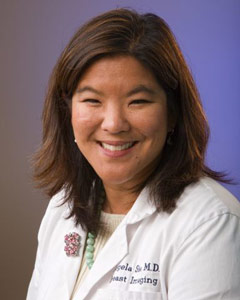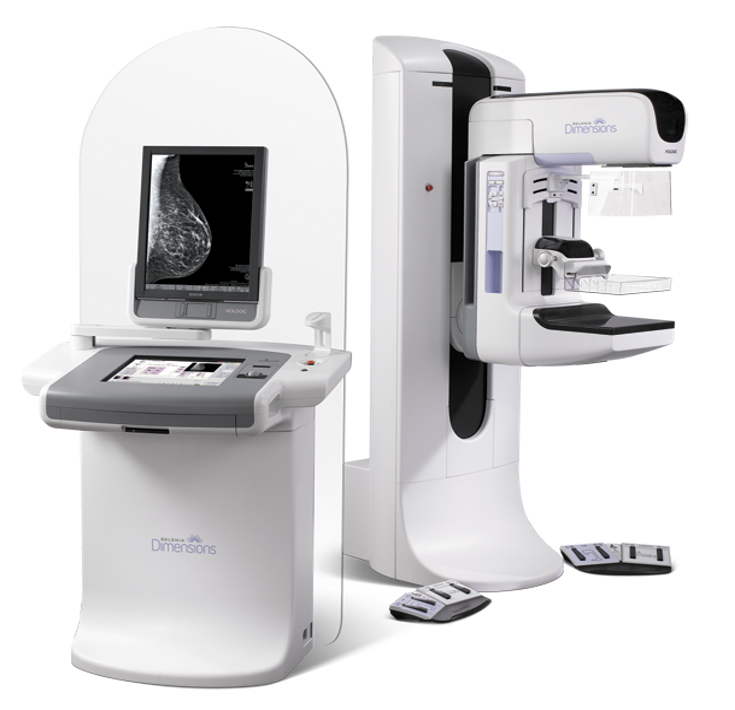
Medical Director, Breast Imaging,
MemorialCare Breast Center,
Long Beach Medical Center
Nearly half of all women age 40 and older who get mammograms are found to have dense breasts according to the National Cancer Institute at the National Institutes of Health.
Breast density is not related to breast size, firmness or how the breast may feel. Rather, breast density is a term that describes the relative amount of glandular, connective and fat tissue seen on a mammogram. Breast density is often hereditary, but other factors can influence it such as age, using postmenopausal hormone replacement therapy and having a low body mass index.
Dense breast tissue makes it harder for radiologists to see cancer on a screening mammogram, so they can be less accurate. Women who have dense breast tissue also have a higher risk of breast cancer compared to women with less dense breast tissue.
Not All Breast Screenings Are Equal

Screening mammography remains the only screening technology proven to improve breast cancer survival. However, not all mammograms are equal. The accuracy of a mammogram, especially for those with dense breasts, is based on a combination of the quality of the images and the experience and skill of the radiologist interpreting the study.
At the MemorialCare Breast Centers, we offer tomosynthesis (3D) mammography. This uses digital x-ray technology to capture multiple images of the entire breast from different angles to produce high-resolution, 3D images, enabling our radiologists to “see through” the dense breast tissue and find cancer that may be hiding within it. Tomosynthesis provides more accurate results with fewer false positives, thus lowering the need for a second mammogram, while increasing cancer detection rates.
And every mammogram is read by our team of sub-specialized, dedicated breast radiologists who focus only on mammography and breast care. Studies have shown that sub-specialized breast radiologists detect more cancers, more early-stage-cancers and have lower screening recall rates than general radiologists. This focus and experience results in a higher quality, more accurate mammogram.
Women with dense breasts may need additional imaging studies, such as a breast MRI or high-resolution breast ultrasound, to further investigate findings or for high risk screening. To help guide our patients through this process, we have a dedicated breast nurse navigator.
Early Detection is Key to Surviving and Thriving
About one in eight women will develop breast cancer during their lifetime. Early detection remains the key to surviving and thriving. Screening mammography is the best tool we have right now for the early detection of breast cancer.
If a cancer is found, newly diagnosed cases are reviewed at a weekly pre-treatment, multi-disciplinary conference where the entire team of breast care experts, including radiologists, surgeons, medical and radiation oncologists, plastic surgeons, genetics counselors and patient navigators discuss and come to a consensus on the best course of care.
Most women should begin regular screening mammograms at age 40. However, women with a family history of breast cancer or other risk factors may require an earlier start to screening and should speak with their physician.
We’re here to support you through each step of the mammography process. To schedule your mammogram at one of our convenient Breast Center locations, call (877) 696-3622 or request an appointment using our online tool.